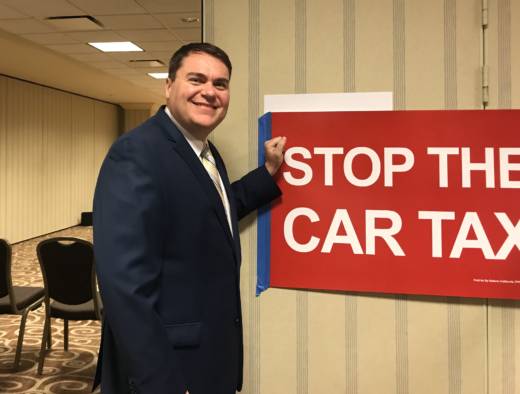California Republicans gathered in San Diego for their state convention may be butting heads over who the party should endorse in the governor’s race, but everyone seems unified on one message: Repealing the gas and car taxes passed in Sacramento last year.
Backers of the measure say they submitted nearly 1 million signatures this week to get the repeal measure on the November ballot — far more than they need to place the question before voters. And at this weekend’s convention, many are tying that effort to the chances for overall GOP electoral success in California. This in a state where no Republican has won statewide office in over a decade and Democrats are targeting seven congressional seats now held by Republicans.
Rep. Mimi Walters, an Orange County congresswoman whose seat is among those in Democrats’ sights, told party faithful Friday night that the gas tax repeal and the health of the GOP nationally are linked.
“Before the Democrats try to defeat President Trump in 2020, they are targeting Republicans in 2018 — and nowhere harder than right here in California,” she said. “Their plan to cripple our Republican president means first cracking Congress … If the Democrats can’t drive us out of California, we will still stand strong everywhere — one way we will do this is through the direct democracy of the initiative process.”
Walters has been key to the gas tax repeal effort, making so many calls to raise money for it that state Senate Republican Leader Pat Bates joked Friday night that she almost changed her cell number. The congresswoman told Republicans that having the repeal on the November ballot is “the last thing the Democrats wanted — this was not the way they saw 2018 shaping up.”

